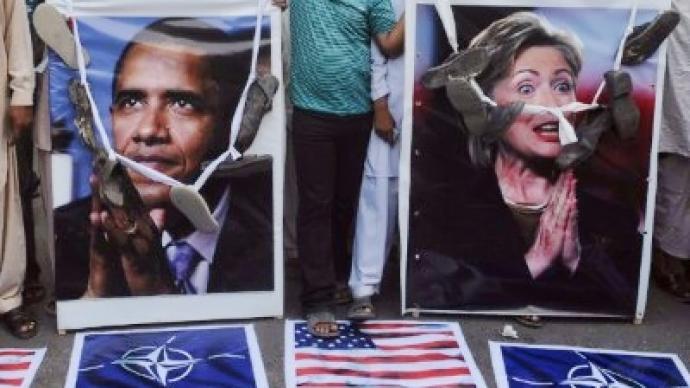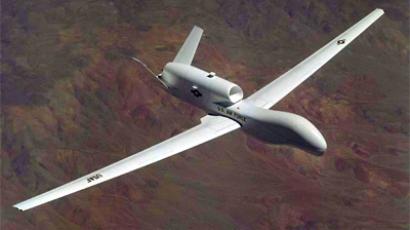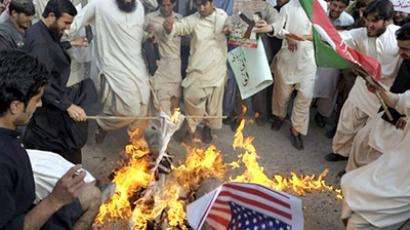Obama won't apologize for deadly raid in Pakistan

Days after a NATO airstrike killed two dozen Pakistani soldiers amid worsening tensions between Islamabad and Washington, the White House says that President Obama does not plan to offer an apology for the executions.
There will be no “oops.” There won't be any “whoopsy daisy.” According to the officials within the administration, apologizes offered already — but not from Obama himself — will have to suffice for now. “The US government has offered its deepest condolences for the loss of life, from the White House and from Secretary Clinton and Secretary Panetta,” Tommy Vietor, spokesman for the National Security Council said Wednesday, “and we are conducting an investigation into the incident.”Vietor added that no further comments will be issued until the full details of the weekend’s events come to light, reports the New York Times. With Obama’s approval rate slumping into some of its lowest numbers to date so soon before Election Day, an acknowledgment of the attack out of the Oval Office — if any — could be as far away as post-November 2012, lest the commander-in-chief wants to align himself as a president that projects his support towards a country unfavorable with many conservatives."Some administration aides also worried that if Mr. Obama were to overrule the military and apologies to Pakistan, such a step could become fodder for his Republican opponents in the presidential campaign," White House officials, speaking under condition of anonymity, tell the Times.In Pakistan, however, the days that go by until the United States discovers and discloses the truth over Saturday’s incident, which led to a loss of life of 24 Pakistani soldiers — soldiers fighting for an army that the United States considers an ally but has humiliated time and time again — will only further hostilities between the two nations.In the years since the United States first began building up a military presence in Pakistan while fighting its War on Terror against insurgents in neighboring Afghanistan, Pakistani citizens have become increasingly irritated with the US military. The assault and execution of former al-Qaeda leader Osama bin Laden in May this year escalated tensions between the two countries after American authorities failed to inform Pakistan that they would be conducting the clandestine raid in conjunction with the government there, instead relying on local informants to coordinate the effort. A month earlier, Pakistani Army General Ashfaq Parvez Kayani asked the CIA to scale back its operations there, and in June, Defense Minister Ahmed Mukhtar echoed that call by ordering American drones out of an air force base in Shamsi.In September, Admiral Mike Mullen, chairman of the US Joint Chiefs of Staff, testified before Congress that he thought Pakistan’s official intel-gathering agency, Inter-Services Intelligence (ISI), was responsible for a truck bomb attack in Afghanistan. Responding to his claims at the time, Foreign Minister Hina Rabbani Khar told Geo TV, "You cannot afford to alienate Pakistan, you cannot afford to alienate the Pakistani people. If you are choosing to do so and if they are choosing to do so it will be at their (the United States') own cost.”As tensions only worsened after the latest raid, America’s ambassador to Pakistan suggested that only an apology from President Obama himself could help ease sentiments between the countries. And although two top figures in his own administration have offered condolences, an apology from the president itself — perhaps the only remedy for the worsening relationship between the nations — seems unlikely now. The New York Times reports that White House officials say that the United States ambassador to Pakistan, Cameron Munter, told Washington on Monday that the anger overseas against America has “reached a fever pitch” and need to be snuffed as soon as possible.“I do think that it’s important for them to recognize that political dynamics in the United States will lead to a hardening of US positions, and the president will have less and less flexibility to accept the kind of behavior that he has in the past,” former Clinton administration official David Rothkopf adds to the Times. “The prognosis for US-Pakistani relations is bleak.”This past weekend’s attack by NATO was aimed at two military border posts in the northwest section of Pakistan and marks the most severe incident from the organization since Pakistan formed an allegiance with American after the September 11 terrorist attacks.














